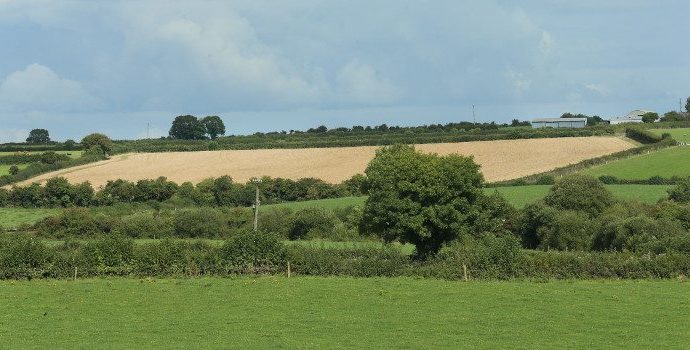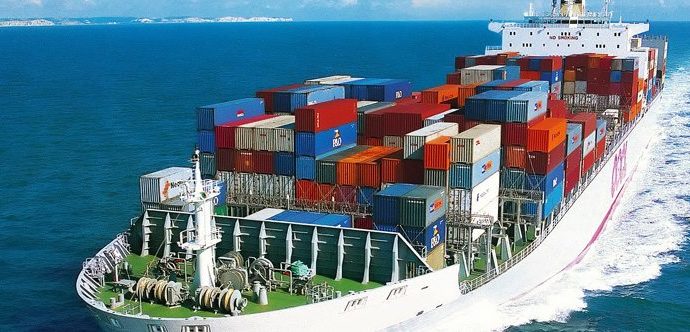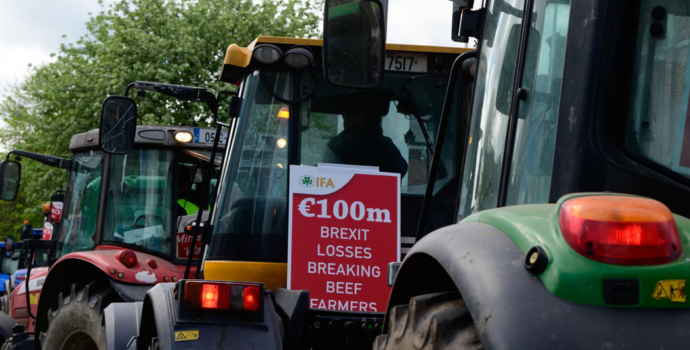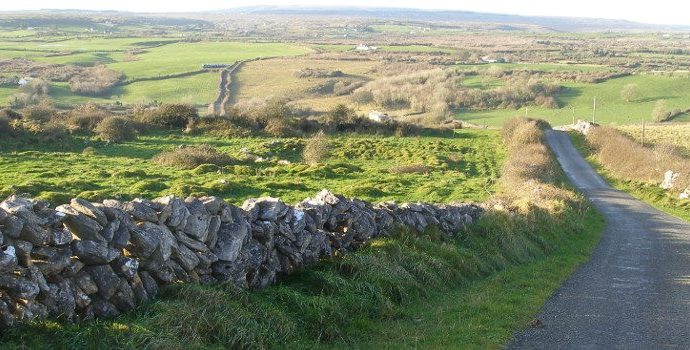Brexit Reports
Brexit Council Report July 2020
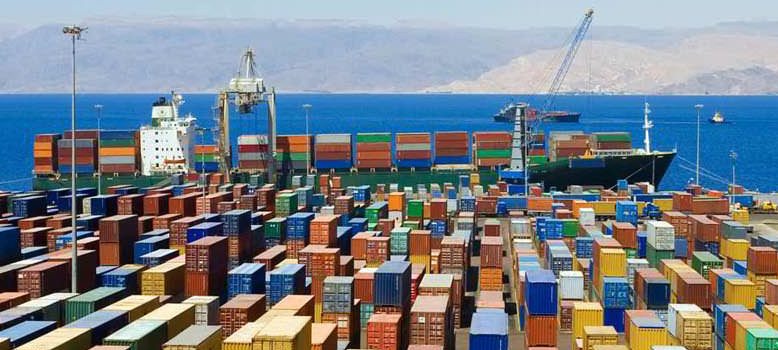
Background: UK exited EU on 31st January 2020 – in Transition Period until 31st December 2020
- UK will not seek TP extension – will exit Single Market and Customs Union on 31st Dec 2020
- Irish farmers again face threat of ‘no-deal’, if no Free Trade Agreement by end 2020
ie tariffs on exports to GB and increased competition from third countries.
EU-UK Negotiations on Future Relationship
- Five weekly rounds of negotiations started 29th June after BJ & EU agreed to intensify talks
- Negotiations are dead-locked after four previous rounds held since March
- Barnier: EU is asking for nothing more than is in the Political Declaration negotiated with Boris Johnson … UK continues to backtrack on its commitments.
- Three main areas of difference
- EU wants a comprehensive partnership agreement covering all areas – UK wants a series of stand-alone agreements on trade, fisheries, services and other areas
- EU wants a level playing field on standards in agri-food, state aid, environment, climate change, taxation, etc. UK wants independence & rejects alignment with EU rules
- Fisheries – UK wants a separate deal & annual negotiations
- Germany in EU Presidency from 1st July – Merkel legacy
- EU says agreement required by end October to allow time for ratification. UK says by autumn.
Other developments
- Tory government rejected amendments to its Agriculture bill – whereby food imports would have to be produced to same standards applying to British farmers (Conservative MP Neil Parish)
- UK & US trade talks
- Reports that UK will offer access for hormone-fed beef, chlorinated chicken, etc but with higher tariffs to protect British farmers. Cabinet divided. Some Ministers want higher tariffs phased out – opposed by Gove & Eustace
- If UK allows lower standard US imports, then EU will require greater checks on UK imports
- UK is also in trade negotiations with Japan, Australia & New Zealand
- UK Global Tariff from Jan 2021 published. An EU-UK FTA would aim to eliminate tariffs.
- Based on EU common external tariff, mostly provides similar levels of protection
- Uses a 5-year average exchange rate of 83.6p (current rate 90p)
- WTO Director General position – Phil Hogan has withdrawn his nomination.
- GB Border Controls for EU Goods – to be phased in. (Does not apply to NI-GB trade)
- Jan 2021 – Standard goods: traders will have up to 6 months to complete customs declarations & pay tariffs. Live animals & high risk plants will require pre-notification, health documentation & be subject to physical checks at destination or other premises
- April 2021 – All products of animal origin (POAO), regulated plants & plant products will require pre-notification & relevant health documentation.
- July 2021 – For all goods, declarations & payment of tariffs required at point of importation. SPS commodities: increased physical checks & sampling now at GB border control posts
- New GB border operating model expected in July.
Northern Ireland Protocol (replaces backstop & aims to avoid hard border in Ireland)
- Part of Withdrawal Agreement – takes effect 1st Jan 2021, irrespective of EU-UK FTA or no deal
- Requires EU Customs and SM rules to apply to all goods entering NI from GB
- EU tariffs to apply, unless goods are not at risk of entering the Republic.
- UK is to expand infrastructure for SPS checks at NI ports on animals and agri-food and some new customs processes. Wants to presume goods are for NI unless there is substantial risk they are destined for Republic
- Barnier: a lot of details to be settled … to move from aspiration to operation.
- UK says NI businesses will have unfettered access to GB, buy has not set out how this will happen, ie how are NI and RoI goods to be identified?
EU negotiating mandate (25th February 2020)
- Offers FTA with no tariffs and no quotas
- Conditional on level playing field and on terms of a fisheries agreement
- Agreement “should uphold common high standards, and corresponding high standards over time with Union standards as a reference point” in the areas of state aid, competition, employment, environment, climate change, relevant tax matters.
- Specific reference to not reducing standards re health and product sanitary quality in the agricultural and food sector1.
- EU reserves right to apply autonomous measures to react quickly to unfair competition.
IFA Position
- 20th May: IFA video conference with Tanaiste Simon Coveney and Minister Helen McEntee
- IFA wants closest possible future trading relationship that maintains value of the UK market for Irish farmers, which in turn will ensure the stability of the EU food market.
- Three objectives:
- Tariff-free and quota-free access to the UK market
- Level playing field whereby the UK maintains corresponding standards on food safety, animal health, environment, etc and
- No return by the UK to a cheap food policy, so that their external tariffs and import quotas for sensitive products such as beef, butter and lamb do not undercut the EU.
- For GB trade to NI, IFA also requires close SPS and customs checks and controls on all live animals and agri-food products
- NI must not become a back-door into the EU for UK’s sub-standard food imports
Brexit Support Measures required by Irish Farmers
- Govt announced €50m support scheme for beef finishers – see Livestock Report.
- IFA had campaigned for €111m for beef price losses from Jan to mid-May 2020, in addition to €160m for May to Dec 2019 losses, and release of €23m unspent BEAM I funding.
- IFA is pressing for Government and EU support measures, including:
- Full compensation for any further losses during Transition arising from Brexit uncertainty, sterling volatility and COVID-19 impact
- Dedicated EU Brexit outcome contingency fund of €1bn with flexibility to be scaled up as necessary to deal with all scenarios including the possibility of no deal, ie to include direct payments to farmers to fully compensate for the reduced value of the UK market in addition to market support measures, and longer-term structural and adjustment funding.
Bryan Barry
Association Secretary

